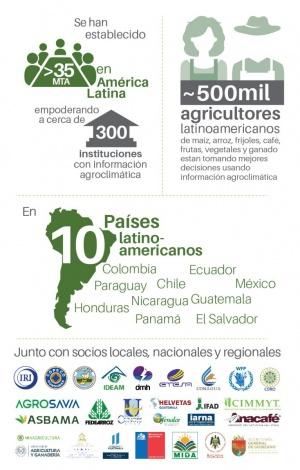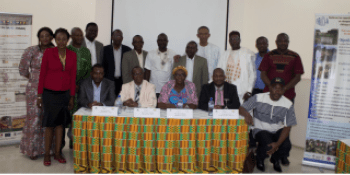Agroclimatic information helps fight COVID-19 in Latin America (Part 1)
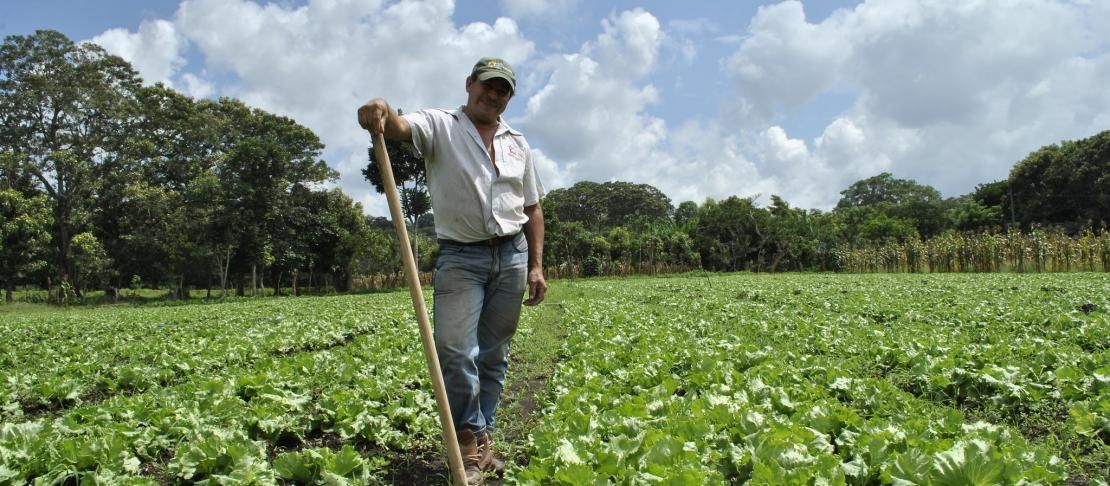
Latin America (LAM) is the new 'epicenter' of the pandemic caused by COVID-19, with an accelerated increase in the number of infections, as estimated by the World Health Organization (WHO). This undoubtedly highlights an imminently worrying scenario for a region with developing economies, inequities, and potentially vulnerable agro-food systems.
Local Technical Agroclimatic Committees (LTACs)—an innovative initiative of the CGIAR Research Program on Climate Change, Agriculture and Food Security (CCAFS) and partners—have been crucial in mitigating the negative effects of the pandemic. They have been addressing questions such as what effects the pandemic has on agriculture and food security in the region, what will happen to the millions of rural dwellers who depend on agriculture, as well as what measures can be taken to reduce the impacts.
How are LTACs responding to the COVID-19 pandemic?
LTACs in LAM are spaces for dialogue between producers and climate and agriculture specialists, where key actors in the sector receive clear and tailored agroclimatic information.
Through LTACs, it has been possible to identify the immediate consequences of the pandemic. Rural communities are being constantly accompanied, and spaces are being created to discuss the impacts on and recommendations for the agricultural sector based on expected climate conditions in the context of COVID-19.
Thus, LTACs are playing a fundamental role in the diagnosis of impacts, and the generation of recommendations.
How do LTACs monitor the impacts of COVID-19?
With the support of facilitators and leaders in the rural communities, LTACs maintain permanent contact with farmers, identifying impacts that the pandemic has had on farmers’ activities and households. A good example of this is in Colombia, Guatemala, and Honduras, where impressions and perspectives on the effects of COVID-19 have been compiled through telephone monitoring.
In line with this, scientists from the Alliance of Bioversity International and the International Center for Tropical Agriculture (the Alliance) are working on consolidating a monitoring survey that aims to address the impacts of COVID-19 on expected climate conditions among producers. These surveys will be conducted in Climate-Smart Villages (CSV)—an approach developed by CCAFS—to address the need for proven and effective climate-smart agriculture options, using the 5Q methodology.
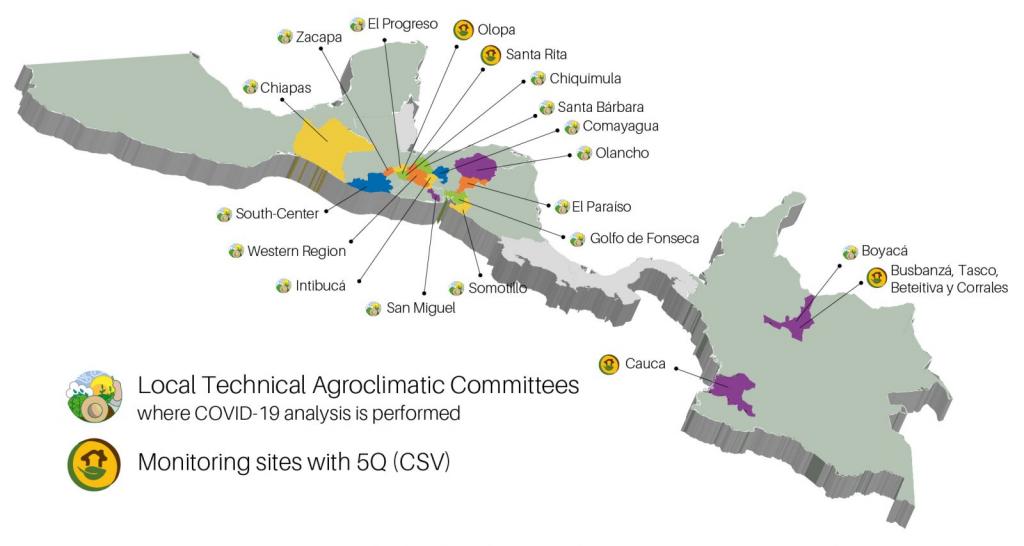
Countries where LTACs are responding to COVID-19. Source: Researchers' own elaboration.
Findings: impacts of COVID-19 on agriculture
Honduras1
- Health, household economy and farm work were identified as the main concerns of farmers. The perceived impacts of the pandemic on the Intibucá region were as follows: reduced access to inputs, pressure on rural households, limitations to do alternative activities, food shortages in local markets, trade restrictions, limited availability of agricultural labor, and social instability.
Guatemala
- The following impacts were noted for the country: limited access to agricultural inputs, increase in food prices, income reduction due to job losses, inability to sell or develop alternative activities, limitations to produce due to lack of income for investments, food shortage, consumption or sale of basic grain reserves, reduced savings in some households due to the increase in food and input prices. The pandemic also had an emotional impact due to isolation.
Colombia2
- The risks for farmers in Boyacá were perceived to be to family welfare, health and household economy. Similarly, farmers were faced with increase in food and input prices, food shortages, consumption of food reserves, animals slaughter to guarantee food in the households, and limited mobility that affected doing alternative activities as a source of income for families.
Mexico
- Agricultural technicians in the state of Chiapas considered the main impacts to be reduced access to inputs, pressure on households due to limitations in mobility that affect sources of alternative activities, reduced food availability, trade restrictions, limited labor, and social instability due to conditions conducive to unrest.
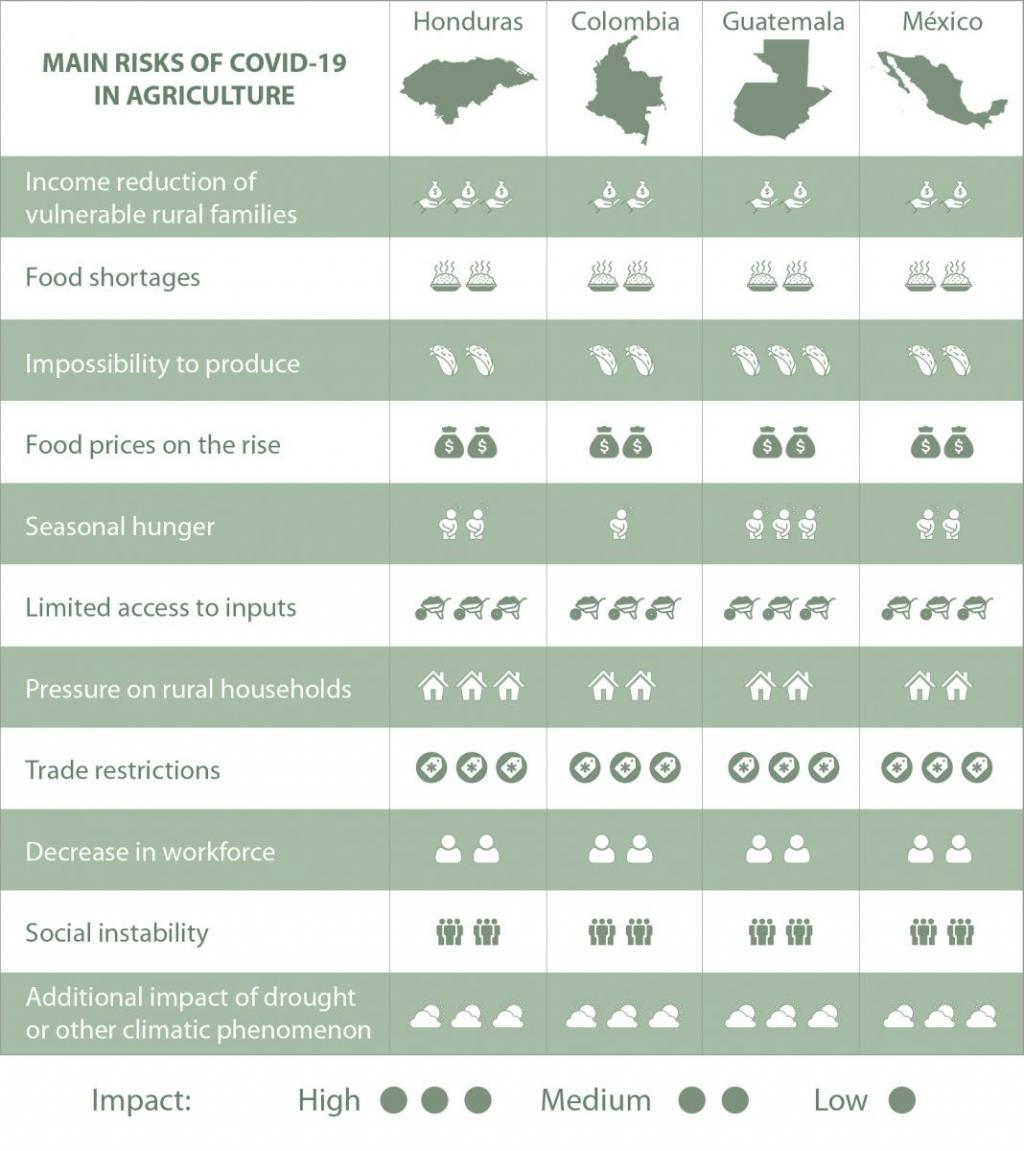
Source: Researchers' own elaboration.
To learn about the recommendations that are being generated from the LTACs to address the aforementioned impacts of COVID-19 and increase agricultural production, please see part two of this research highlight.
Read more:
- News update: COVID-19: An opportunity to speed up the transformation of agri-food systems
- News update: Strengthening climate services for agriculture in Latin America
- Blog: How we can use the COVID-19 disruption to improve food systems and address the climate emergency
